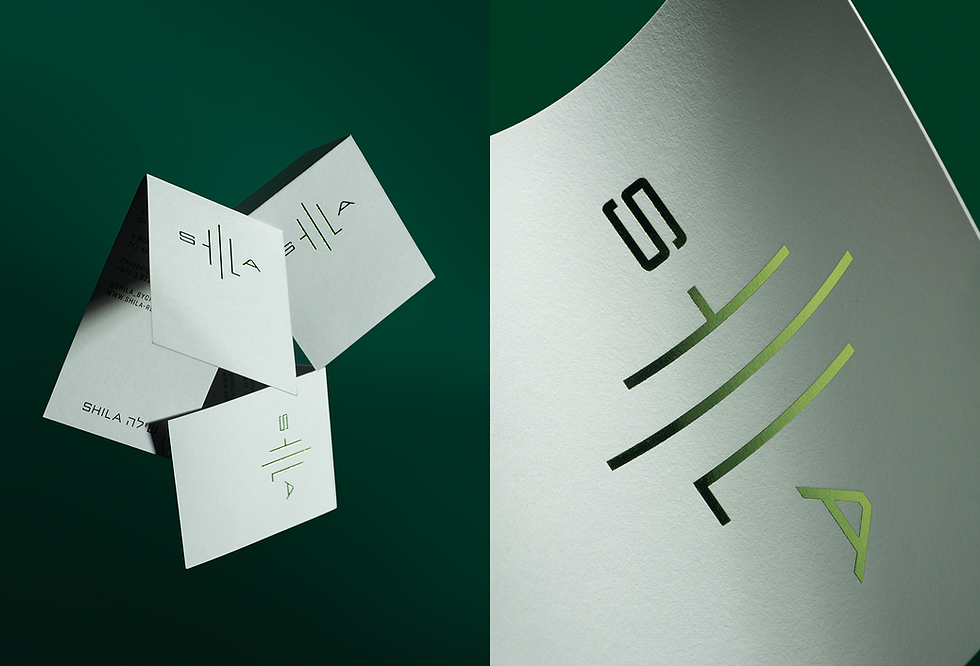- Editorial Team
- Oct 27, 2021
- 4 min read
Updated: Mar 5, 2023
Hear from the Wix motion designer who doesn’t believes in “proper etiquette,” and very much believes in being yourself both at work, and in your work.
Tell us about your work: what is your current position?
My main work is as a motion designer, which means I develop the visual concept, design the needed materials, and work with the animator to achieve the final desired product. For certain projects I may animate too, or direct shoots on-set.
What was your graduation project and how did it affect your career?
My graduation project from Bezalel Academy was an animation short titled “SHIFT.” Even though the project was well received, I didn’t promote it or share it online (just recently changed the setting to public!). I was lucky to build my career regardless, but I wish I didn't let my insecurities hide my achievements.
What skills/assets did you learn in college that you felt ended up rewarding you the most in finding your first position?
Quickly developing concepts and creating clear visual representations of my ideas. I had a home assignment to develop a storyboard and initial sketches for a pre-written script. I was able to, very quickly, have a clear idea about the visuals, and had the tools to create the designs in the short time given.
When you got into the “real world” what did you look back on in your education and found lacking?
My college focused on the artistic process — concept development, creating visuals, and conveying a message. It didn’t teach any of the more practical or financial aspects of a professional creative career, so I had to learn those on my own.
The portfolio interview is a daunting moment — any general tips around etiquette for before, during and after (secret things that people wished were done but maybe usually go unsaid)?
I’m not a big believer in “proper etiquette.” I think it’s most important to be yourself both in your work and in keeping with your natural behavior. Show you're a professional, but also that you are (hopefully) a pleasant person to work with. And make eye contact!

And what’s the most important thing to have/show in a portfolio?
I believe it’s most important to show who you are as a creative. I love seeing half-baked ideas and frames from the design process — it shows passion and genuine interests much more than a perfectly polished, trendy design.
How do you usually start working on a project?
Paper and pencil. It’s easy to straightaway look for references online or jump directly to Photoshop, but I like to let my hand scribble freely while I keep my mind open to unexpected ideas.
How do you use trends in your work?
There are wide varieties and levels of trends — just like fashion trends. There are some trends that change visuals across mediums, and some trends that are niche or more “extreme.” The big trends inevitably affect every project of mine. I use the niche trends only for projects that will be short-lived, like a specific holiday campaign. You don’t want to have massive projects that are based on fleeting trends.
Professional expertise is something that you know you’re just naturally great at. It isn’t necessarily what you love but what you’re good at. How did you find your own professional expertise?
I used to view my expertise as a fault of mine. I never had a specific one-of-a-kind style in my work, and during my school years it felt like a disadvantage because every project went in a different direction. Once I started working for clients, I realized being a creative “chameleon” is an advantage because I can fit into any project, as needed.
The first year after school can be a confusing time. What was it like for you?
My first post-college year I worked as a freelance animator, and was fortunate to have plenty of work, but I didn’t have any healthy work habits. I pretty much worked everyday and night because I didn’t know how to build a good work routine. By the end of that first year, I managed my time much better (but still had a lot to learn).

What's the best advice you've received (and from whom)?
I've heard a lot of inspiring advice through the years but the most useful has been, “No bad frames!” Many beginner animators tend to allow a few “bad frames” to occur, as long as the main shots are good enough. Whether it’s a bland frame during a transition, or badly designed scroll credits, my college professor instilled the idea that the viewer should be able to pause my work at any moment, and always see a thought-out frame.
What are you working on now?
On a very rare occasion, I don’t have a big project in the works. But, for the past few months I’ve been directing the Editor X Tutorial shoots. It has been a challenging and fun experience getting to know all the different designers, and directing them from far away, through video chat.
What do you find most useful in your work (research, visuals, softwares, etc.)?
People. The most underrated asset is creative people. Surround yourself with people who improve or challenge your ideas, and make you reach creative solutions you wouldn’t have reached by yourself.



